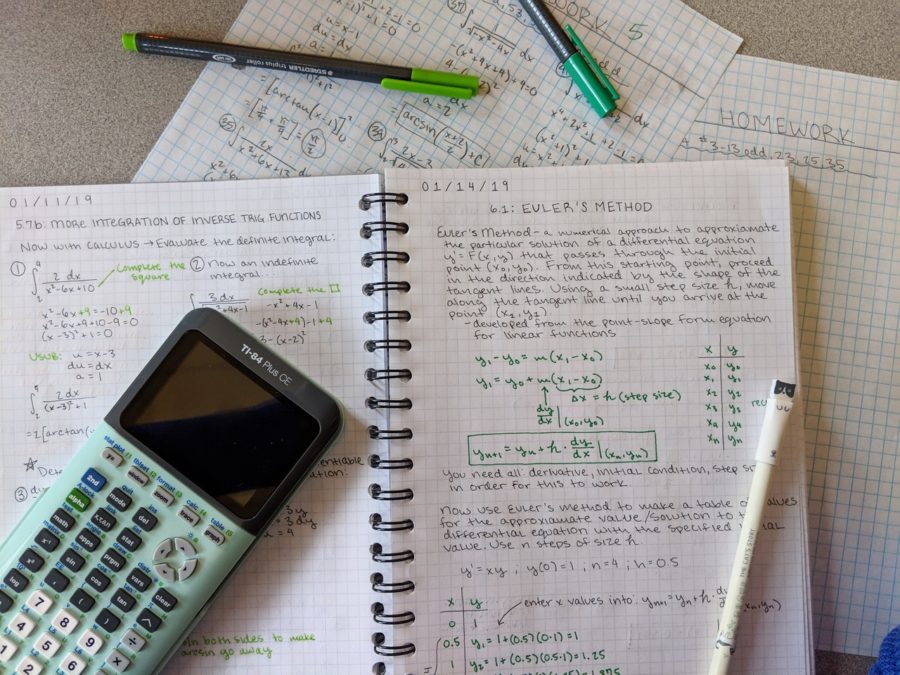Plagued by Math: Math Anxiety
January 17, 2022
1 in 5 high school students experience math anxiety at school as a result of negative experiences with math. However, this problem can be dealt with through mindfulness.
Math anxiety, or math phobia, is the fear surrounding a student’s capability to perform math. In a video with TedEd called, “Why do people get so anxious about math?” Orly Rubinsten estimates that 20% of the population has math anxiety. Math anxiety often stems from a student’s early years. Fear of public embarrassment and timed tests can result in math anxiety. Teachers with a negative outlook on math can also pass their phobia on to their students and impact their success.
Math anxiety prevents students from reaching their full potential. Working memory, which assists in organizing information to solve problems, decreases in students with math anxiety. This decrease in working memory impacts how well students do their tests: especially since tests are timed. Last year, with the quadmester system, students had to learn a lot of content in just two months. This may have made their math anxiety worse.
During a math test, students might experience an increasing heart rate, sweatiness, shaking, or nausea. These are physical symptoms that indicate math anxiety. Students may also experience feelings of helplessness, nervousness, a lack of confidence, or an unusual feeling of panic when thinking about math.
 Math anxiety is scary, but manageable. Students with math phobia can participate in mindfulness activities to ease their mind. Short breathing exercises and quick walks before tests can increase one’s chances of doing well. Practicing math also helps, as it increases confidence. The most important thing a student can do though, is have positive goals and a positive mindset.
Math anxiety is scary, but manageable. Students with math phobia can participate in mindfulness activities to ease their mind. Short breathing exercises and quick walks before tests can increase one’s chances of doing well. Practicing math also helps, as it increases confidence. The most important thing a student can do though, is have positive goals and a positive mindset.
For these activities to work, however, there needs to be a couple changes. Similar to the mindful minute, students should be given a couple minutes in the morning and after lunch to breathe and reflect. Teachers should try to teach math as an interesting subject and engage students in class (if they aren’t already). Students should be informed about math anxiety through workshops, as it may help them to know that they are not alone.

